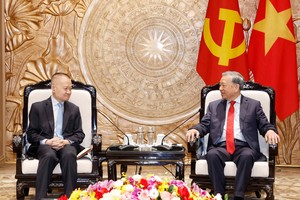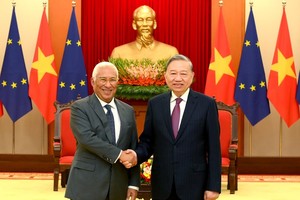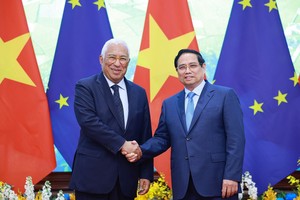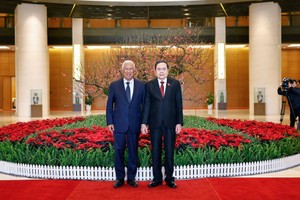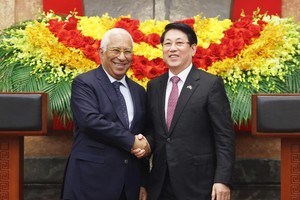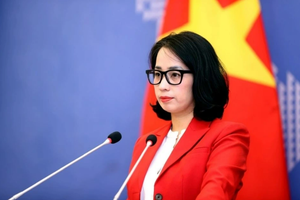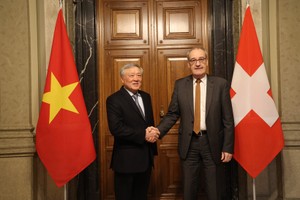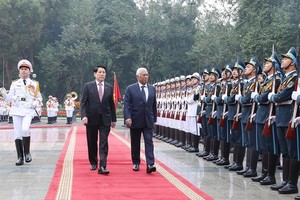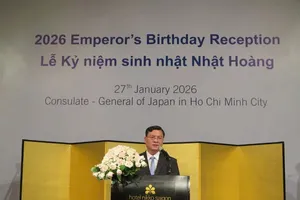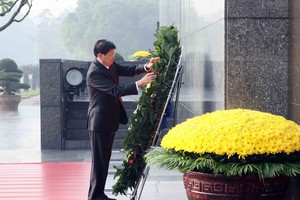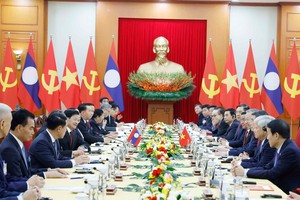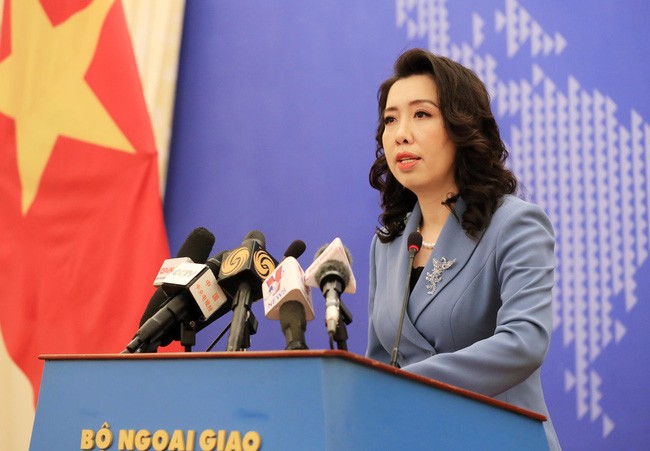 Foreign Ministry spokesperson Le Thi Thu Hang (Photo: VNA)
Foreign Ministry spokesperson Le Thi Thu Hang (Photo: VNA)
Commenting on several foreign brands’ use of maps showing the illegal nine-dash line on their Chinese-language websites, Hang stressed that as affirmed many times before, Vietnam has sufficient historical evidence and legal ground to affirm its sovereignty over Hoang Sa and Truong Sa in line with international law, as well as sovereignty, sovereign right and jurisdiction over relevant waters in the East Sea as defined in accordance with the 1982 United Nations Convention on the Law of the Sea (UNCLOS).
Every form of propaganda to spread things that are against historical truth and international law is valueless and will not be able to change the truth about Vietnam’s sovereignty over Hoang Sa and Truong Sa, as well as the East Sea issue, she said.
About Vietnam’s stance on recent developments in the East Sea and related issues, including Chinese vessels’ operation in the Bai Ba Dau (Whitsun Reef) in Vietnam’s Truong Sa, the spokeswoman affirmed that Vietnamese competent authorities always keep a close watch over developments in the East Sea, and protect and enforce the country’s sovereignty, sovereign right and national jurisdiction at sea and in Vietnamese waters in accordance with international law and the 1982 UNCLOS.
She made it clear that peace, stability, cooperation and development in the East Sea is the common aspiration and goal of countries in the East Sea, in the region and of the international community. The respect for legal order at sea and the full, consistent, good-will and responsible implementation of the 1982 UNCLOS hold significance to achieving such goals.
Vietnam calls on countries to contribute to maintaining peace, stability and cooperation in the East Sea, follow international law and the UNCLOS, seriously abide by the Declaration on the Conduct of Parties in the East Sea, especially the obligation to exercise self-restraint, refraining from complicating the situation, creating a favourable environment for the negotiations on an effective and efficient Code of Conduct in the East Sea, thus contributing to fostering trust, maintaining peace, stability, and promoting international order at sea and security, safety, navigation freedom in the East Sea, she said.

